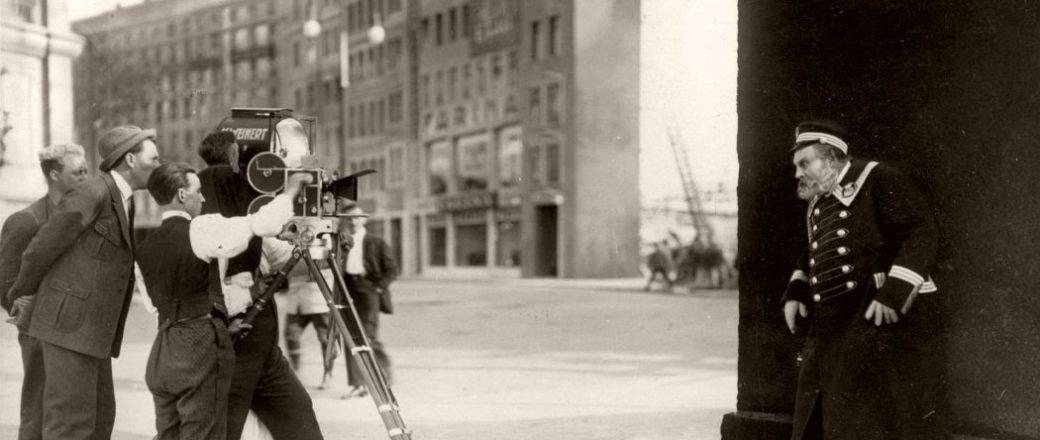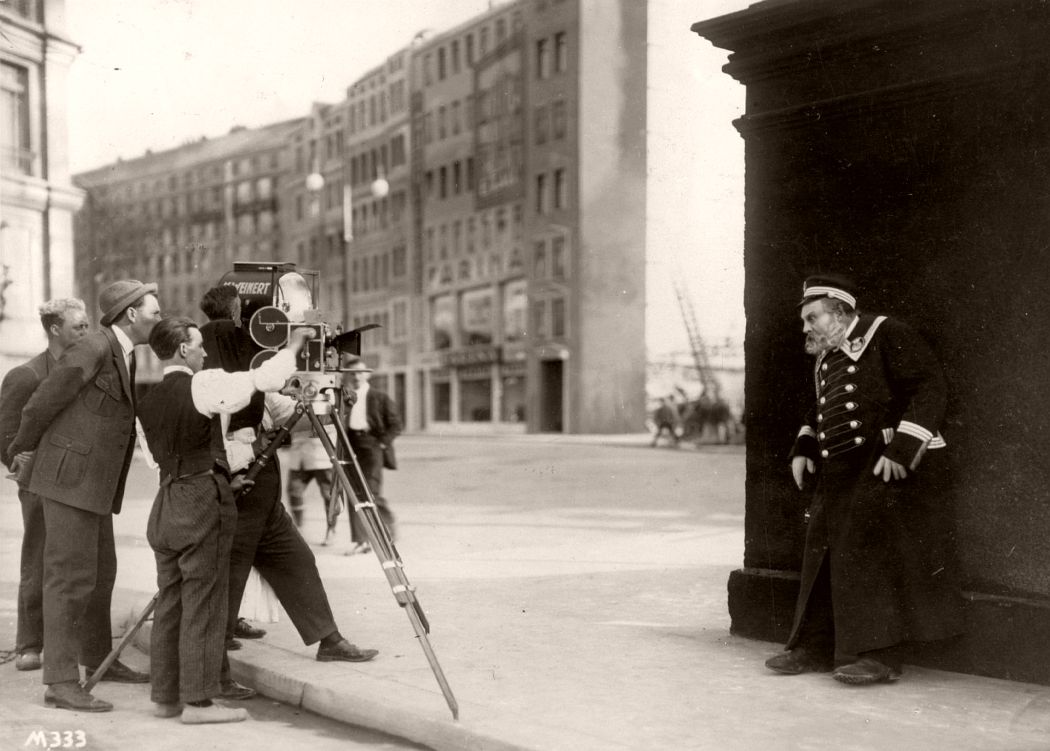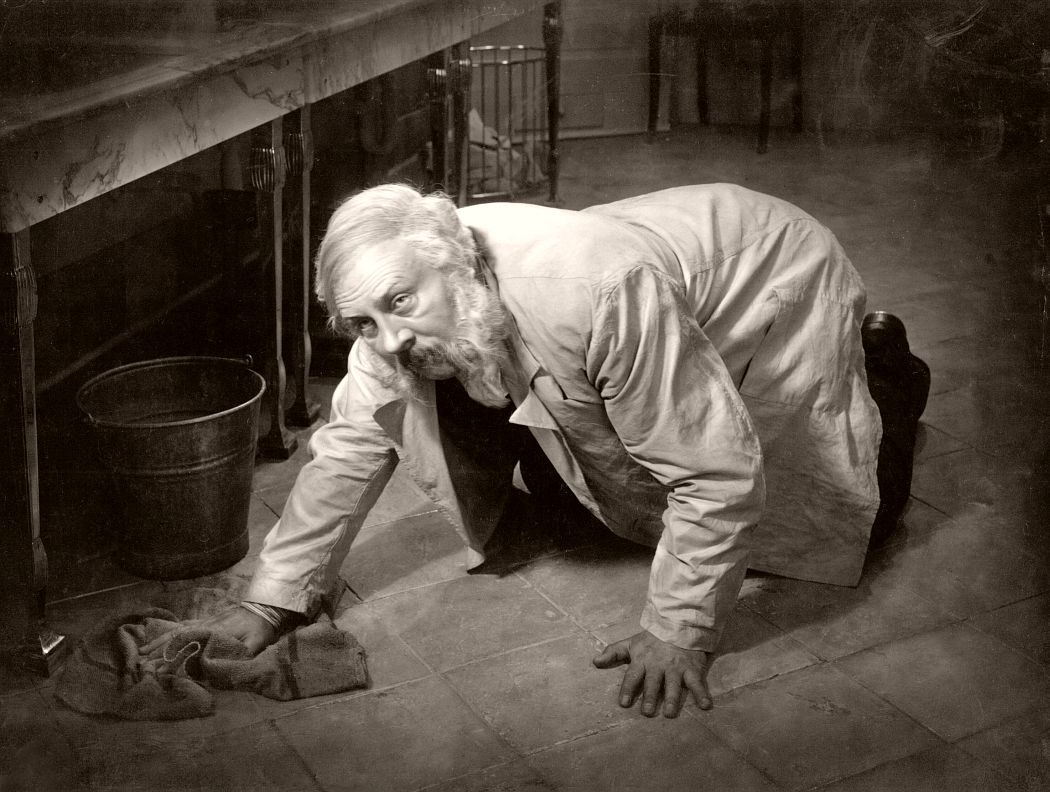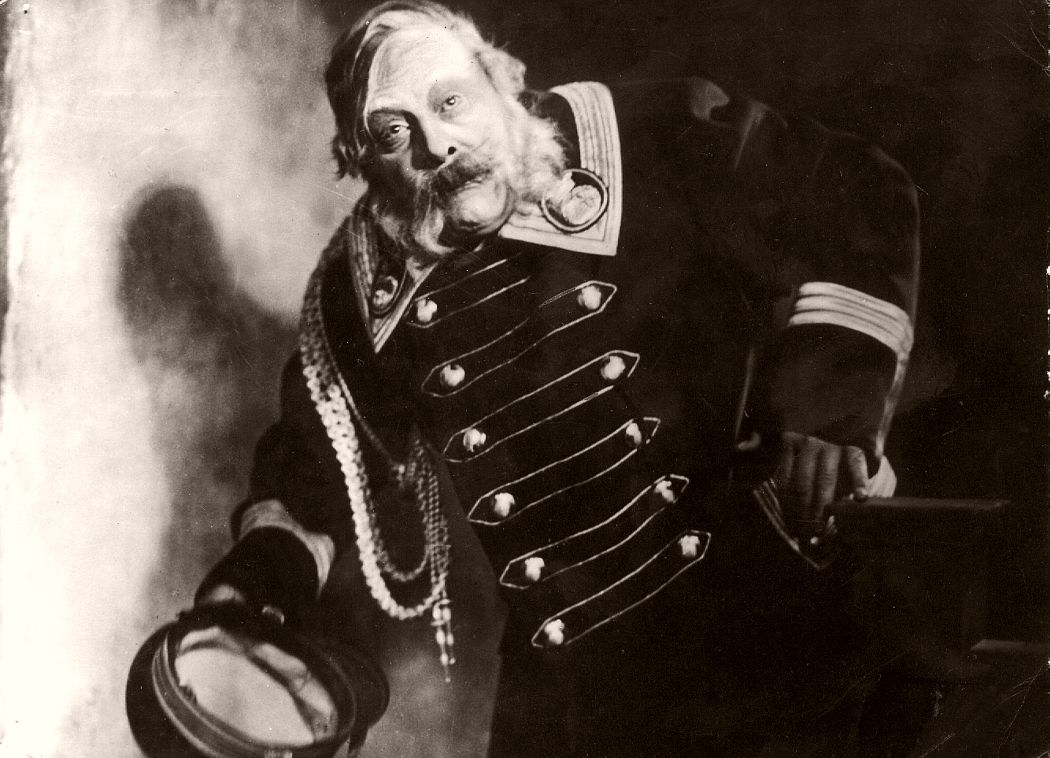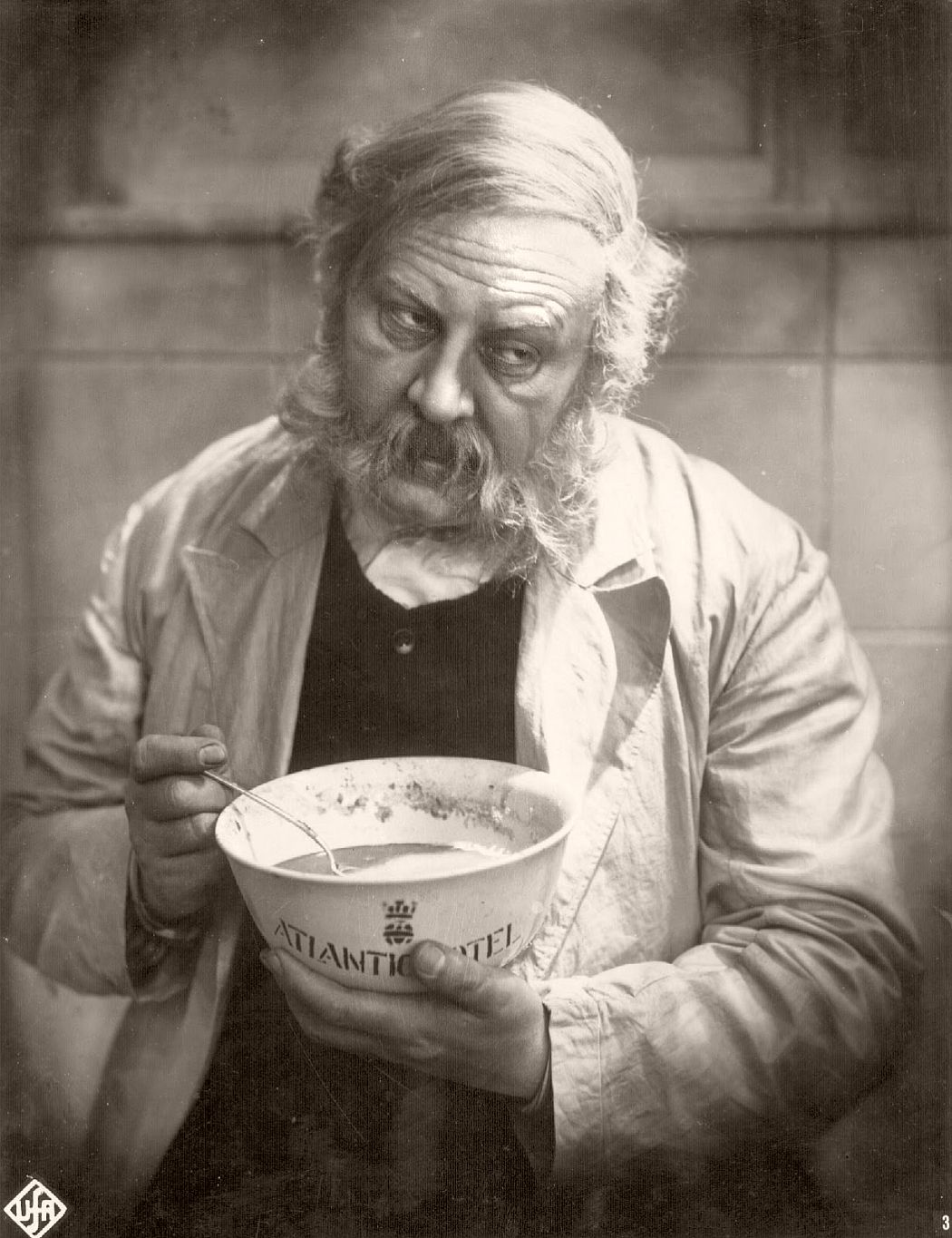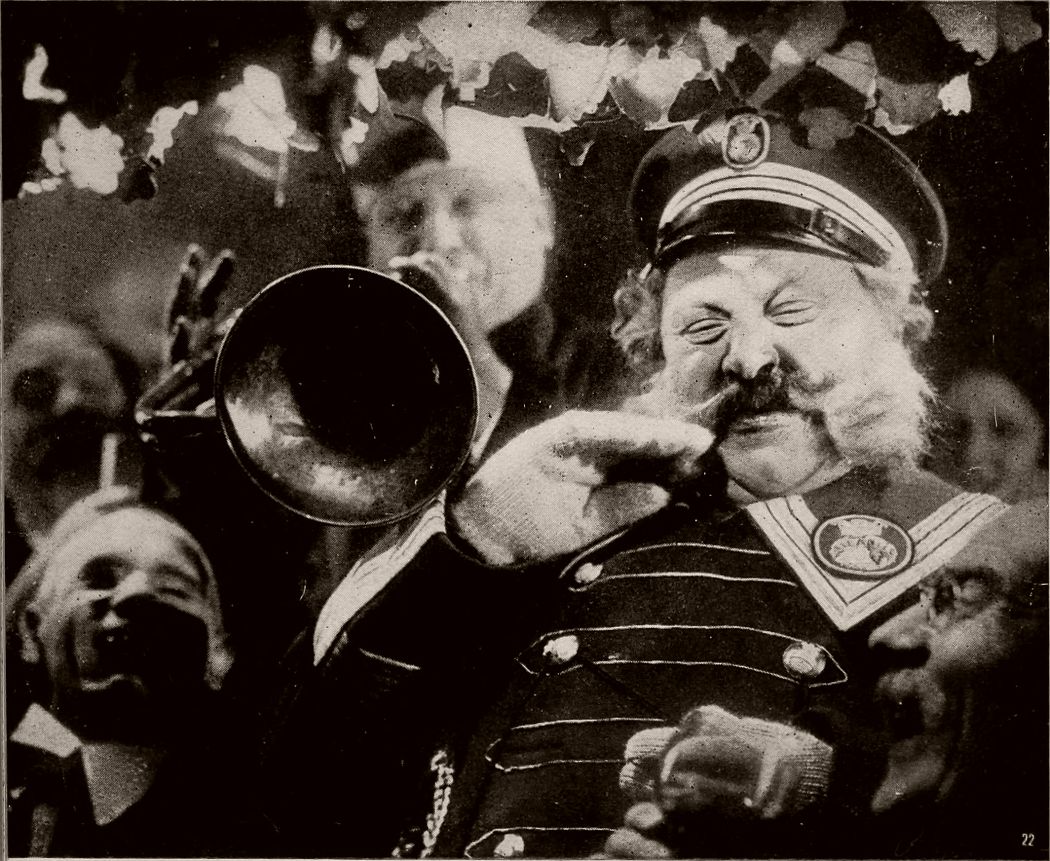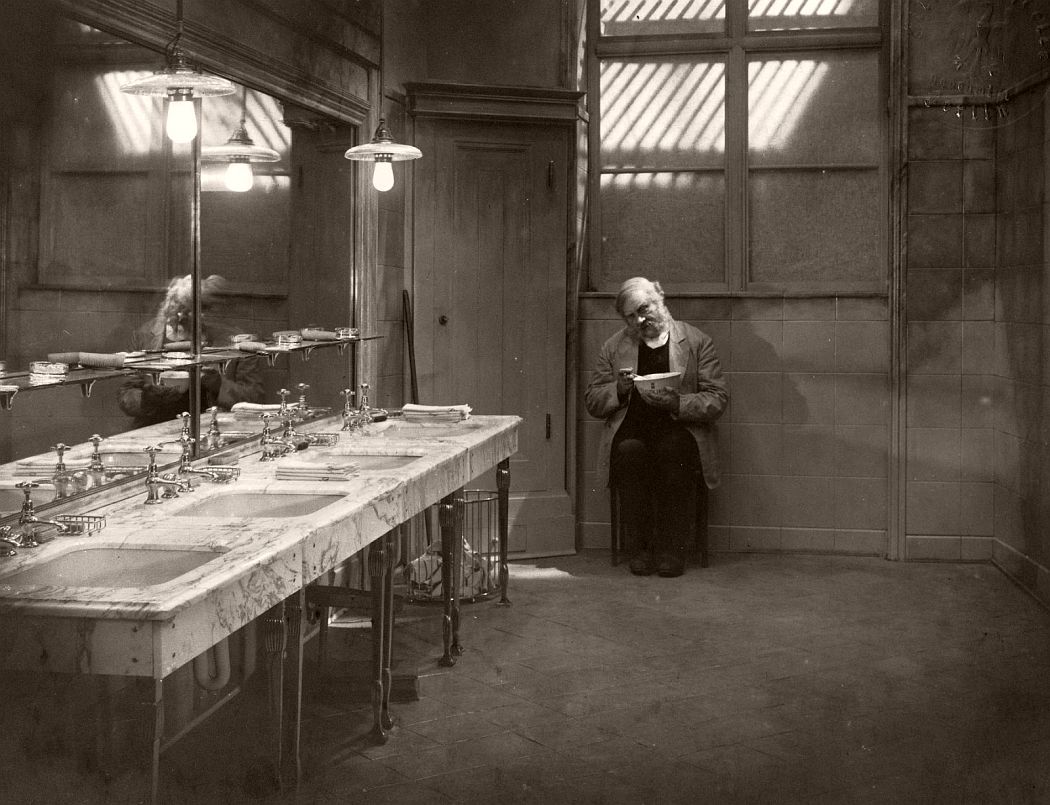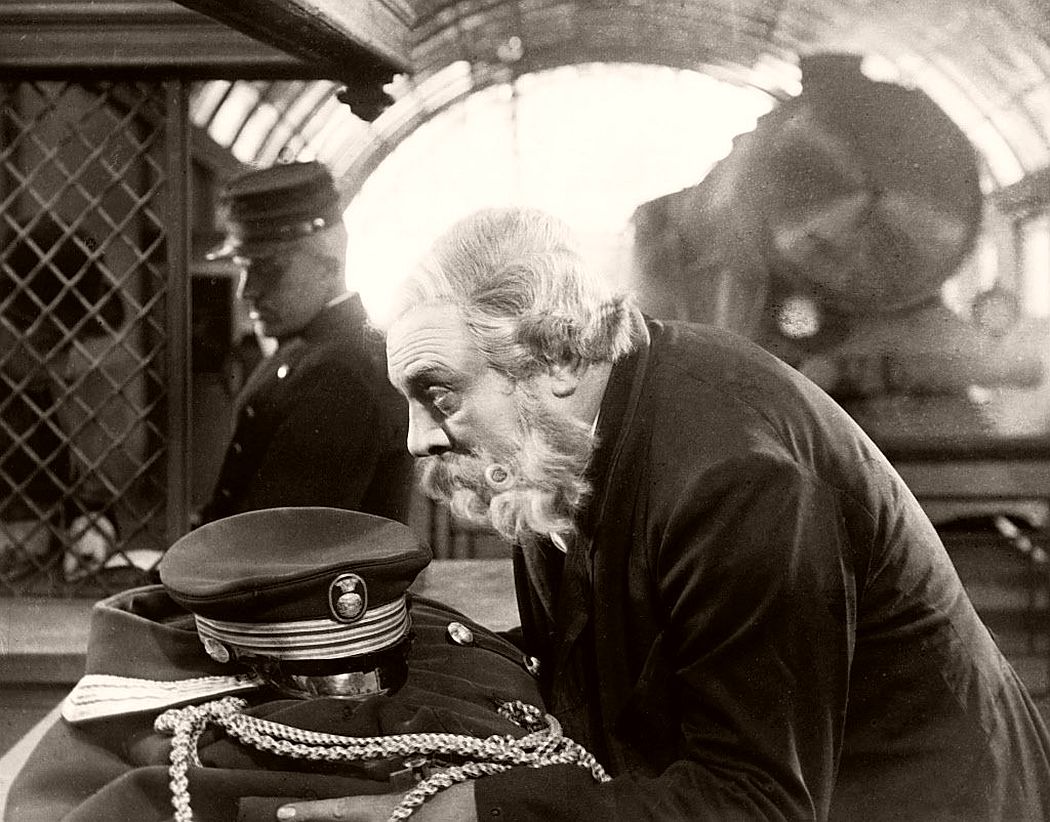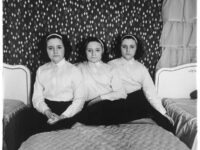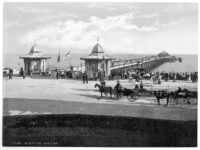The Last Laugh is a 1924 German silent film directed by German director F. W. Murnau.
Jannings’ character is a doorman for a famous hotel, who takes great pride in his work and position. His manager decides that the doorman is getting too old and infirm to present the image of the hotel, and so demotes him to a less demanding job, of washroom attendant. He tries to conceal his demotion from his friends and family but, to his shame, he is discovered. His friends, thinking he has lied to them all along about his prestigious job, taunt him mercilessly while his family rejects him out of shame. The man, shocked and in incredible grief, returns to the hotel to sleep in the washroom where he works. The only person to be kind towards him is the night watchman, who covers him with his coat as he falls asleep.
Following this comes the film’s only title card, which says: “Here our story should really end, for in actual life, the forlorn old man would have little to look forward to but death. The author took pity on him, however, and provided quite an improbable epilogue.”
At the end, the doorman reads in the newspaper that he inherited a fortune from a Mexican millionaire named A. G. Money, a patron who died in his arms in the hotel washroom. Jannings returns to the hotel, where he dines happily with the night watchman who showed him kindness. On their way to the carriage, the doorman gives tips to all the service personnel from the hotel, who quickly line up along his way. In the final scene of the film, when both the doorman and the night watchman are in the carriage, a beggar asks the doorman for some money. The doorman invites the beggar to the carriage and even gives a tip to the new doorman, who is now in charge of bringing the guests inside.

